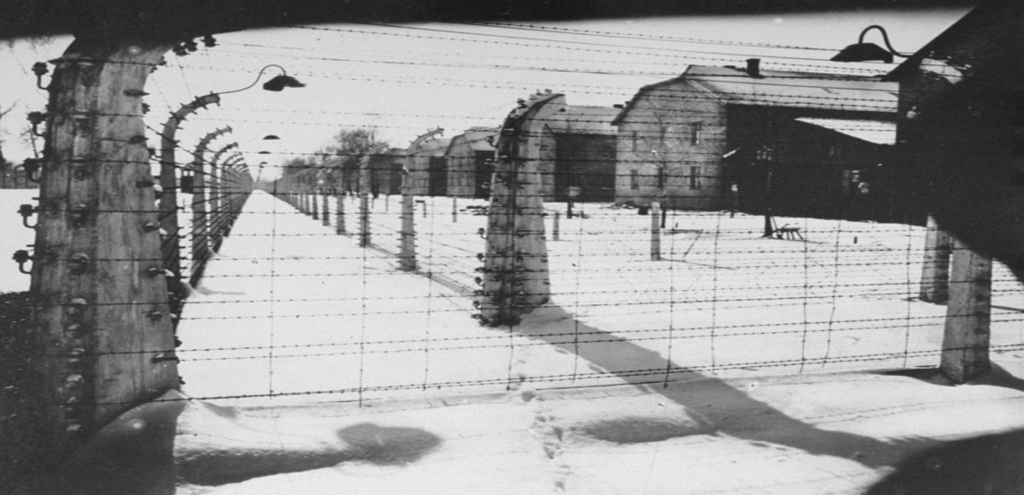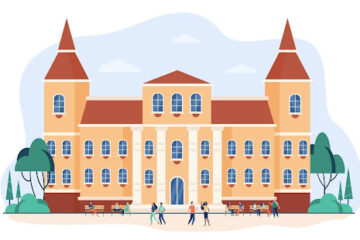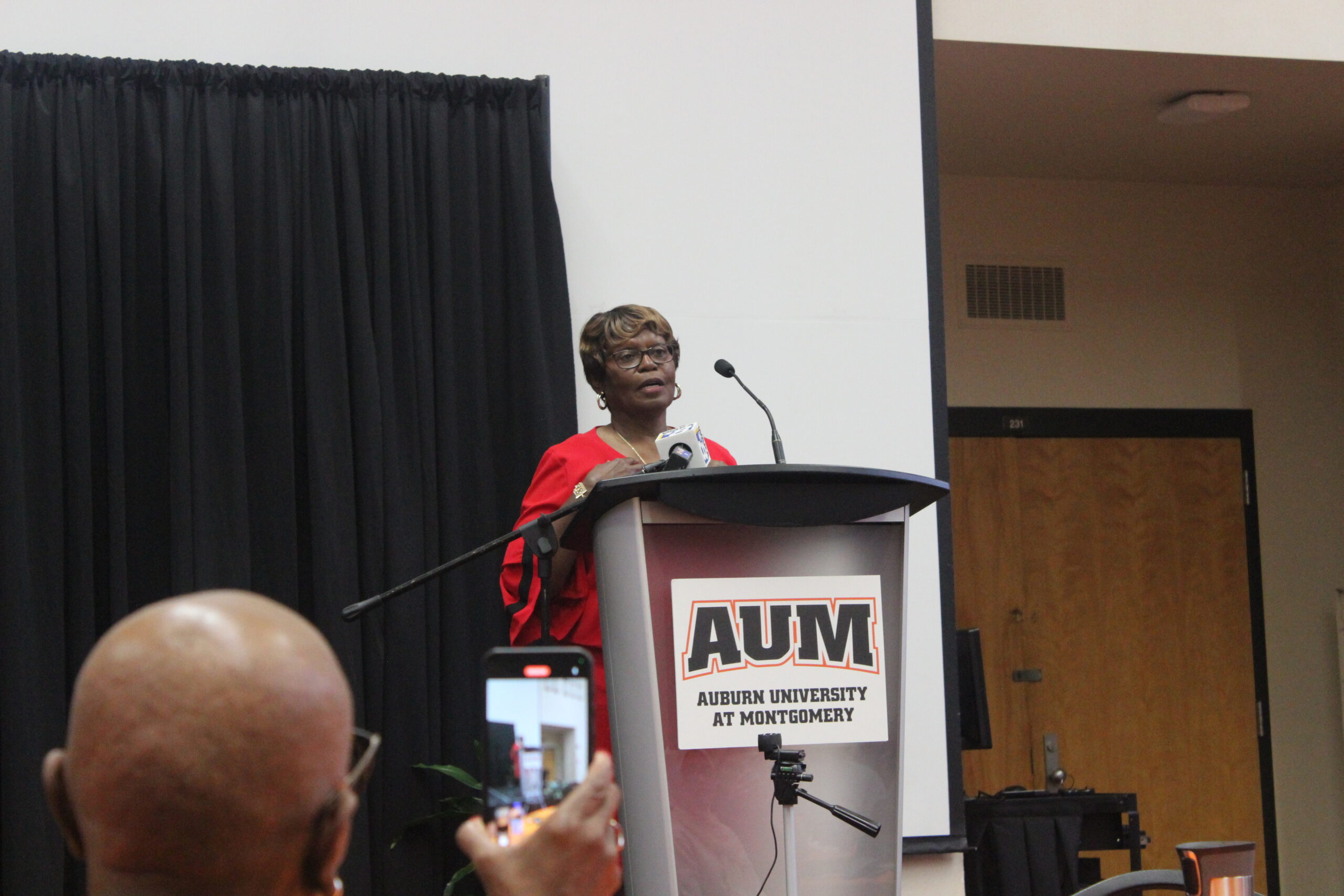BY: Brittany Vallely
Two Holocaust survivors shared their chilling stories with students and faculty as part of the AUM’s Office of Diversity and Inclusion Holocaust Memorial Program.
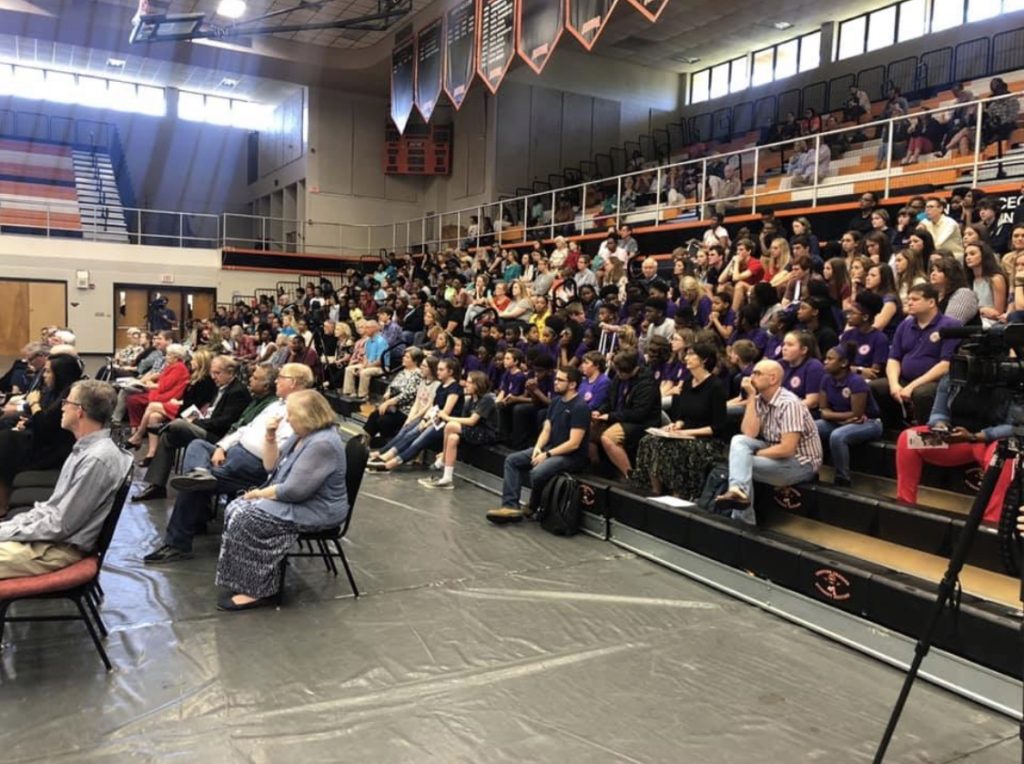
Riva Hirsch and Max Herzel both had different stories of what happened to them during the Holocaust when they were only children. This is a short recap of their story because both survivors said they would be there for many hours if they explained everything. Here are some emotional details that stuck out.
Dr. Eric Sterling, an AUM Professor, introduced the speakers. Many students in the Office of Diversity and Inclusion program escorted the speakers as they stood up.
Max Herzel spoke first and said that he was 10-years-old when he went through the Holocaust.
“Food I don’t have to tell you- 200 calories a day. I’m sure I ate most of my mother’s food that she gave to me, and we were playing in the sand, sleeping on perhaps a couple of straws. No mattresses, coffee was mud, and that’s the way we lived for a while,” said Herzel.
The majority of the guards were Spaniard prisoners– Herzel explained that his father knew what was coming and had to get his family out of the camps. Herzel said Spaniards did not care who their master was, but if you bribed them, then you could get out of the camps.
“They said (to his father) ‘on such and such night make sure to bring your son over to the camp here and will take you out of camp. Your wife cannot go with us, she is the ransom of what we want from you. When you pay us, then we will bring your wife out.’ They honored us and within seven days they took my mother out of the camps, and we traveled by train to the city of Monce. What my father gave them, I have no idea and I will never find out… it’s up to you to guess.”
Herzel and his family had to relocate many times, and he says only three people from his entire family survived: “From the immediate family that I knew, that I played with as a kid, there’s 13 of us that disappeared,” said Herzel.
When Herzel was finished with his story, the audience stood up and applauded. As soon as everyone sat down again, the crowd grew very quiet as they got ready to hear Hirsch.
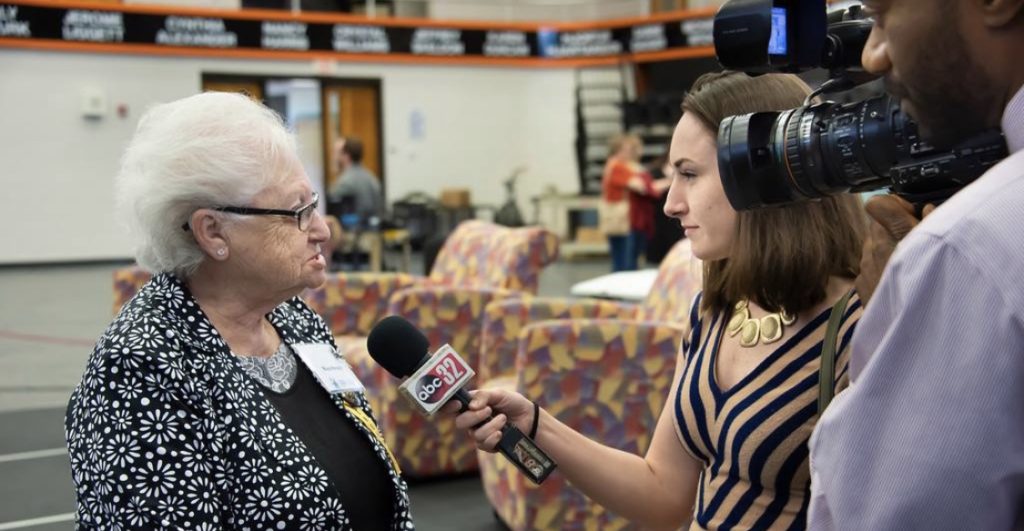
Hirsch says it is very hard for her to talk about her past because when she goes home afterward she is sick and takes her days to recuperate, but she believes she must keep talking so that the stories will be passed on.
“My dear friends, I can’t remember what I ate this morning, but I cannot forget what I went through as a 7-year-old little girl,” said Hirsch.
Hirsch and her family received a warning that something bad was going to happen, and they left their house with small packages. She says her family could hear the bombs flying over their heads as they kept on walking. They found a place to hide with a man named Joshua by giving him the packages they had.
“He took us to the mill,” said Hirsch. “We came in the darkness and we just sat down on the floor. He (Joshua) came running back and he said we had to leave the mill because the Germans were around. If they come in and find us they are going to kill his family and kill us, which is true…Where do we go again? Back to the forest. Meantime the packages were gone.”
They kept on walking and would go to the fields to search for food. They tried to travel to Hirsch’s other set of grandparents and were almost at the end of the forest, but they were caught by the Germans and the German dogs. Her family was separated and put into different lines– Hirsch was taken to a camp in Luchinetz.
Hirsch continued to give the basics and says many miracles happened. She was rescued by partisans one night where she hid in a wagon and had to play dead. She was taken to a Catholic convent in Tulchin and stayed there for two years. When the war was over, she was released, but she was too sick to walk and had to crawl. Two strangers found her and they saw the sign from the Red Cross that said if anyone from Ukraine survived then they have to come to this place. The two strangers carried her and took her to Chenoweth.
“They tried to clean my feet from bleeding, and they gave me a little tiny bed… that the babies lay in when they go to Kindergarten… and guess what, my father survived,” said Hirsch.
Her father stayed with her for a while, but he told her he had to leave to go find others. He eventually came back and found her two brothers.
“So here I am today,” said Hirsch. “We have to keep on talking and talking and talking to make sure another Hitler will not show up.”
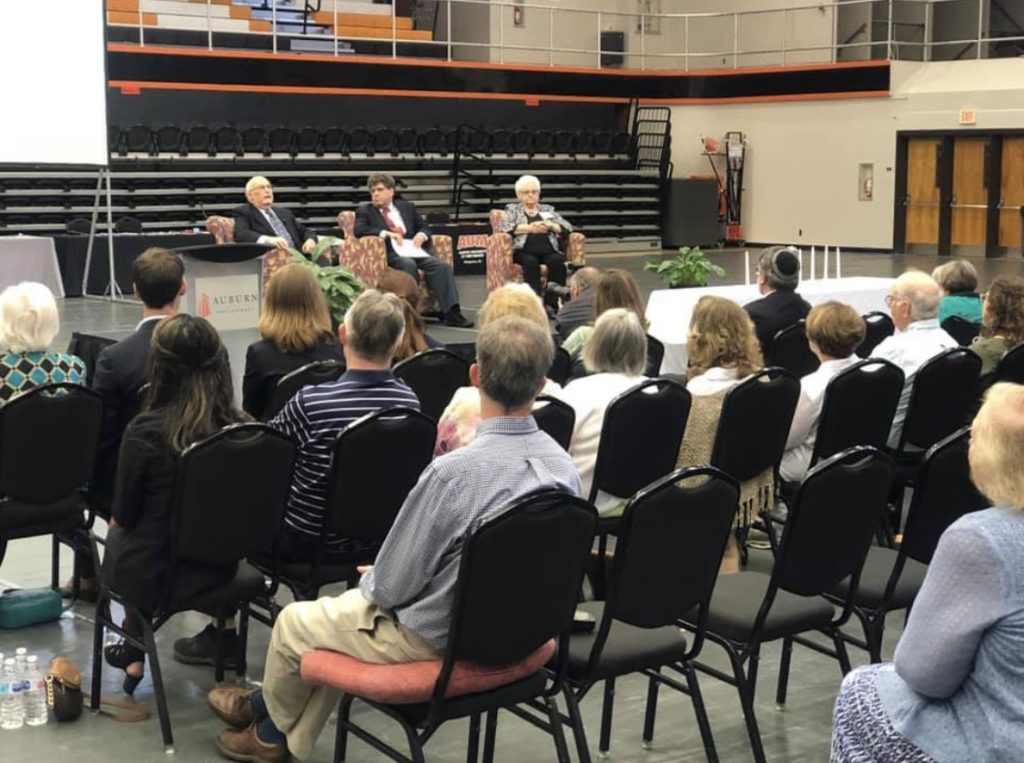
The crowd stood up again and applauded when Hirsch finished, and Dr. Sterling closed out the event.
Herzel and Hirsch have both traveled the country telling their stories and said they are very proud of AUM for inviting them. They believe surviving the Holocaust is one thing, but studying it is a whole different aspect.
“Racial issues– it’s very important. We need to love each other, it is as simple as that,” said Herzel.

